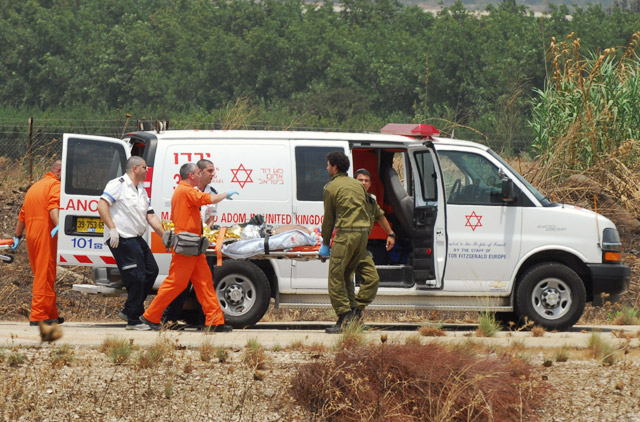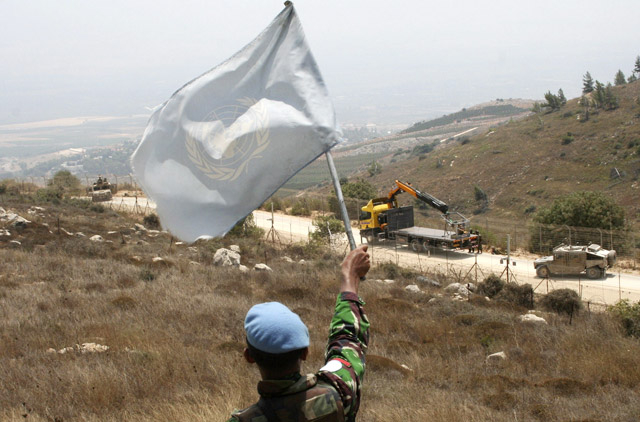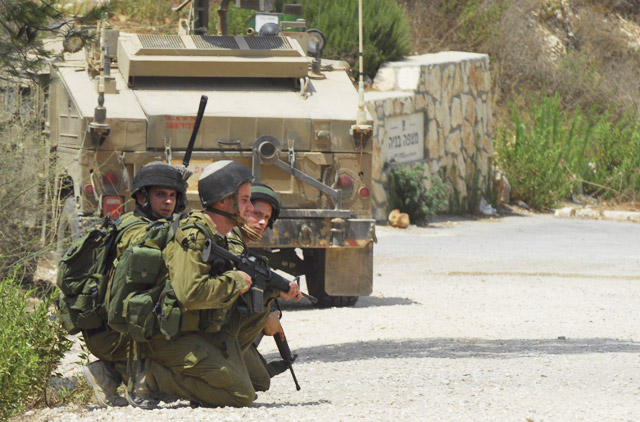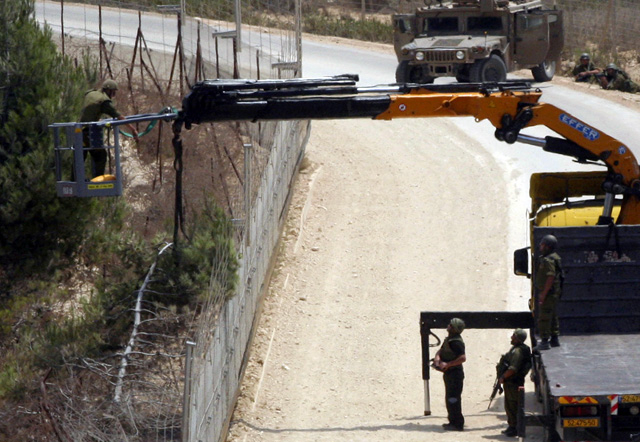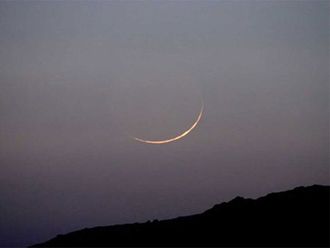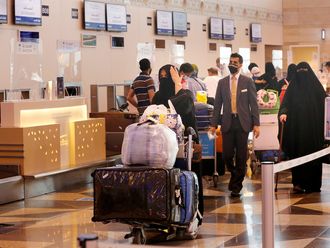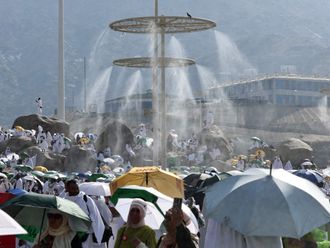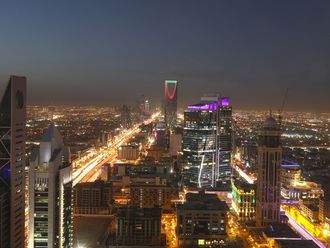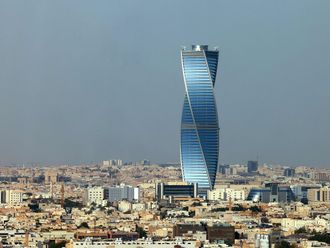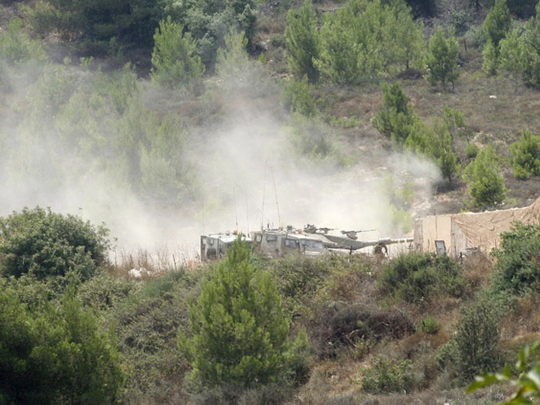
Adaisseh, Lebanon: Israeli and Lebanese troops fought in a rare cross-border skirmish on Tuesday that killed three Lebanese and a senior Israeli officer in the most serious violence along the frontier since a 2006 war.
The Iranian-and Syrian-backed Hezbollah group, which battled Israel four years ago, took no part in the exchange of fire.
There was also no sign of any extensive Israeli preparations for a large-scale operation; an early indication the clash might not trigger a wider conflict.
Security sources and witnesses said there was no more fighting, but tension remained high.
The Lebanese and Israeli armies gave different descriptions of the events leading up to the skirmish, while the UN peacekeeping force stationed in southern Lebanon said it had yet to ascertain the circumstances leading to the bloodshed.
The Lebanese army said an Israeli patrol had crossed the technical line of the border even though UN peacekeepers in the area told it to stop.
"A Lebanese army force then repelled it using rocket propelled grenades. A clash happened in which the enemy forces used machine guns and tank fire targeting army posts and civilian houses," it said.
Major-General Gadi Eisenkot, head of Israel's northern command, said a Lebanese sniper squad fired at officers inside Israeli territory. He said an Israeli tank came under fire from a rocket-propelled grenade, and when it missed, the tank fired and killed the RPG squad.
UN calls for "maximum restraint"
UN peacekeepers in Lebanon (UNIFIL), who were in the area when the incident took place, appealed to both sides to exercise "maximum restraint".
An emergency meeting of Lebanon's Higher Council for Defence headed by President Michel Sulaiman held the Israel accountable and said it would complain to the UN Security Council.
Two Lebanese soldiers and a journalist were killed, the council said. Earlier, security sources said three soldiers had died. The Israeli military said the dead officer was a battalion commander with the rank of lieutenant-colonel.
Israel's shekel currency fell against the dollar due to concern about the incident.
A new war could be even more devastating than the last. Tension has increased since Israel accused Syria in April of transferring long-range Scud missiles to Hezbollah in southern Lebanon. Syria has rejected the allegation.
Israel has threatened to attack Lebanese infrastructure in any new conflict. In 2006 it bombed bridges, fuel tanks, radar stations and Beirut airport, while Hezbollah fired 4,000 rockets into Israel.
Hezbollah leader Sayyed Hassan Nasrallah has also threatened to hit Israel's airport and ships in any future conflict. Nasrallah was due to address supporters in a pre-scheduled event to mark the end of the 2006 war.
"A clash between Israeli and Lebanese troops along the border ... will raise diplomatic tensions but is unlikely to lead to more fighting," research firm Eurasia Group said.
Syrian President Bashar Al Assad telephoned Sulaiman to offer support to and Prime Minister Saad Al Hariri spoke to a number of leaders, including French President Nicolas Sarkozy and asked for France's assistance in ending what he called "Israeli aggressive practices against Lebanon and its army".
Israeli complaint
Israel's Foreign Ministry said it would file a complaint at the United Nations over the clash, accusing Beirut of violating the 2006 Security Council resolution that ended the war.
An Israeli helicopter fired two missiles at a Lebanese army post near Adaisseh, destroying an armoured personnel carrier. Witnesses said Israeli artillery also fired at the village.
"The smoke was so thick it was hard to see the damage to the homes. I heard several shots, but it was hard to tell from which side," a Reuters witness said.
The fatalities were the first suffered by either side since the 2006 war in which 1,200 people, mostly civilians, were killed in Lebanon, along with 158 Israelis, mostly soldiers.
A 13,000-strong UN peacekeeping force known as UNIFIL now patrols southern Lebanon under a UN resolution that expanded its mandate and ended the war on Aug. 14, 2006.
The incident occurred a day after rockets that Israel suspects were fired from Egypt by Islamist militants struck Jordan's Red Sea port of Aqaba, killing a man.


